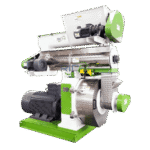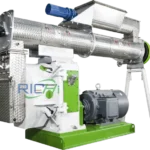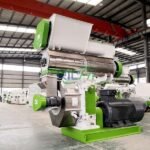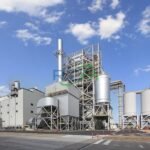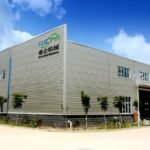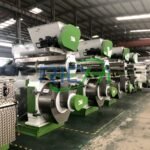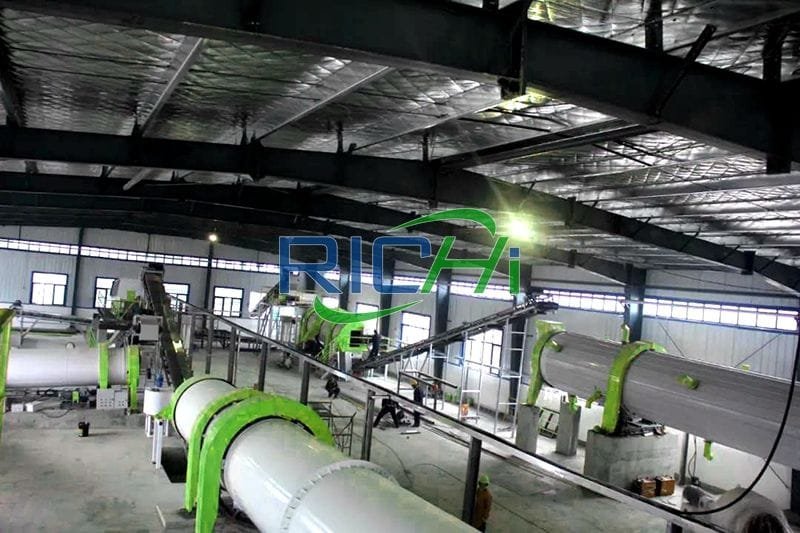The global shift towards sustainable agriculture has significantly increased the demand for organic fertilizers. As a result, several countries have emerged as leaders in providing technical support for organic fertilizer production projects. This article explores the countries that offer the most robust technical support and the key factors contributing to their leadership in this field.
Key Factors Influencing Technical Support
- Government Initiatives and Policies
- Government regulations and policies play a crucial role in promoting organic fertilizer production.
- Supportive policies can include subsidies, grants, and technical assistance programs.
- Research and Development
- Investment in research and development (R&D) helps in the innovation of new technologies and methods for organic fertilizer production.
- Collaboration between universities, research institutions, and industry stakeholders is essential.
- Industry Associations and Networks
- Industry associations provide a platform for knowledge sharing and collaboration.
- These associations often offer training programs, workshops, and certification services.
- Infrastructure and Logistics
- Well-developed infrastructure and logistics networks facilitate the efficient production and distribution of organic fertilizers.
- Access to modern facilities and equipment is crucial for maintaining high production standards.
Related post:compost pellet making machine
Leading Countries in Technical Support for Organic Fertilizer Production
- Germany
Germany is a global leader in providing technical support for organic fertilizer production projects. The country’s robust regulatory framework, advanced research institutions, and strong industry associations contribute to its leadership.
- Government Initiatives: Germany’s Federal Ministry of Food and Agriculture (BMEL) provides grants and subsidies for organic farming and fertilizer projects. The German government also supports research initiatives focused on sustainable agriculture.
- Research and Development: Institutions like the Fraunhofer Institute for Environmental, Safety, and Energy Technology conduct cutting-edge research in organic fertilizer production. Collaborative projects between universities and industry stakeholders drive innovation.
- Industry Associations: The German Association for Organic Farming (BÖLW) offers training programs, workshops, and certification services for organic fertilizer producers.
- Infrastructure: Germany’s well-developed infrastructure and logistics networks support efficient production and distribution.
- United States
The United States offers extensive technical support for organic fertilizer production through government programs, research institutions, and industry associations.
- Government Initiatives: The U.S. Department of Agriculture (USDA) provides grants and technical assistance through programs like the Organic Agriculture Research and Extension Initiative (OREI). The Environmental Protection Agency (EPA) sets stringent guidelines for organic fertilizer production to ensure environmental compliance.
- Research and Development: Universities such as the University of California, Davis, and Cornell University conduct extensive research on organic fertilizers. The USDA’s Agricultural Research Service (ARS) also plays a significant role in advancing the field.
- Industry Associations: The Organic Trade Association (OTA) offers resources, training, and certification services for organic fertilizer producers.
- Infrastructure: The U.S. benefits from a well-developed infrastructure that supports large-scale production and distribution.
- Netherlands
The Netherlands is known for its innovative approach to sustainable agriculture and provides substantial technical support for organic fertilizer production.
- Government Initiatives: The Dutch government supports sustainable agriculture through grants and subsidies. Programs like the Sustainable Agriculture Action Plan promote the use of organic fertilizers.
- Research and Development: Wageningen University & Research is a leading institution in agricultural research, including organic fertilizer production. Collaborative projects with industry stakeholders drive technological advancements.
- Industry Associations: The Dutch Association for Sustainable Agriculture offers training programs and certification services for organic fertilizer producers.
- Infrastructure: The Netherlands has a well-developed infrastructure and logistics network, facilitating efficient production and distribution.
- Sweden
Sweden’s commitment to sustainability and environmental protection makes it a leader in providing technical support for organic fertilizer production.
- Government Initiatives: The Swedish Board of Agriculture provides grants and technical assistance for organic farming and fertilizer projects. The government’s focus on sustainability drives support for organic fertilizer production.
- Research and Development: Institutions like the Swedish University of Agricultural Sciences (SLU) conduct research on organic fertilizers. Collaborative projects with industry stakeholders promote innovation.
- Industry Associations: The Swedish Organic Farmers Association offers training programs, workshops, and certification services for organic fertilizer producers.
- Infrastructure: Sweden’s well-developed infrastructure supports efficient production and distribution.
- Canada
Canada provides substantial technical support for organic fertilizer production through government programs, research institutions, and industry associations.
- Government Initiatives: Agriculture and Agri-Food Canada (AAFC) provides grants and technical assistance for organic farming and fertilizer projects. The Canadian government’s focus on sustainable agriculture supports the growth of the organic fertilizer industry.
- Research and Development: Institutions like the University of Guelph and the University of British Columbia conduct research on organic fertilizers. Collaborative projects with industry stakeholders drive innovation.
- Industry Associations: The Canadian Organic Growers (COG) offers resources, training, and certification services for organic fertilizer producers.
- Infrastructure: Canada’s well-developed infrastructure supports large-scale production and distribution.
- Japan
Japan’s focus on sustainability and advanced technology makes it a leader in providing technical support for organic fertilizer production.
- Government Initiatives: The Ministry of Agriculture, Forestry and Fisheries (MAFF) provides grants and technical assistance for organic farming and fertilizer projects. The government’s focus on sustainability drives support for organic fertilizer production.
- Research and Development: Institutions like the University of Tokyo and Kyoto University conduct research on organic fertilizers. Collaborative projects with industry stakeholders promote innovation.
- Industry Associations: The Japan Organic Agriculture Association offers training programs, workshops, and certification services for organic fertilizer producers.
- Infrastructure: Japan’s well-developed infrastructure supports efficient production and distribution.
Conclusion
Several countries have emerged as leaders in providing technical support for organic fertilizer production projects. Germany, the United States, the Netherlands, Sweden, Canada, and Japan stand out due to their robust government initiatives, advanced research institutions, strong industry associations, and well-developed infrastructure.
These countries not only provide the necessary technical support but also drive innovation in organic fertilizer production through collaborative research and development efforts. As the global demand for organic fertilizers continues to grow, the practices and support systems established by these leading countries serve as important benchmarks for the industry worldwide, promoting a more sustainable and environmentally responsible approach to agriculture.
For details please contact: Richi Pellet Machine
WhatsApp:86 138 3838 9622
Email:enquiry@richipelletmachine.com
